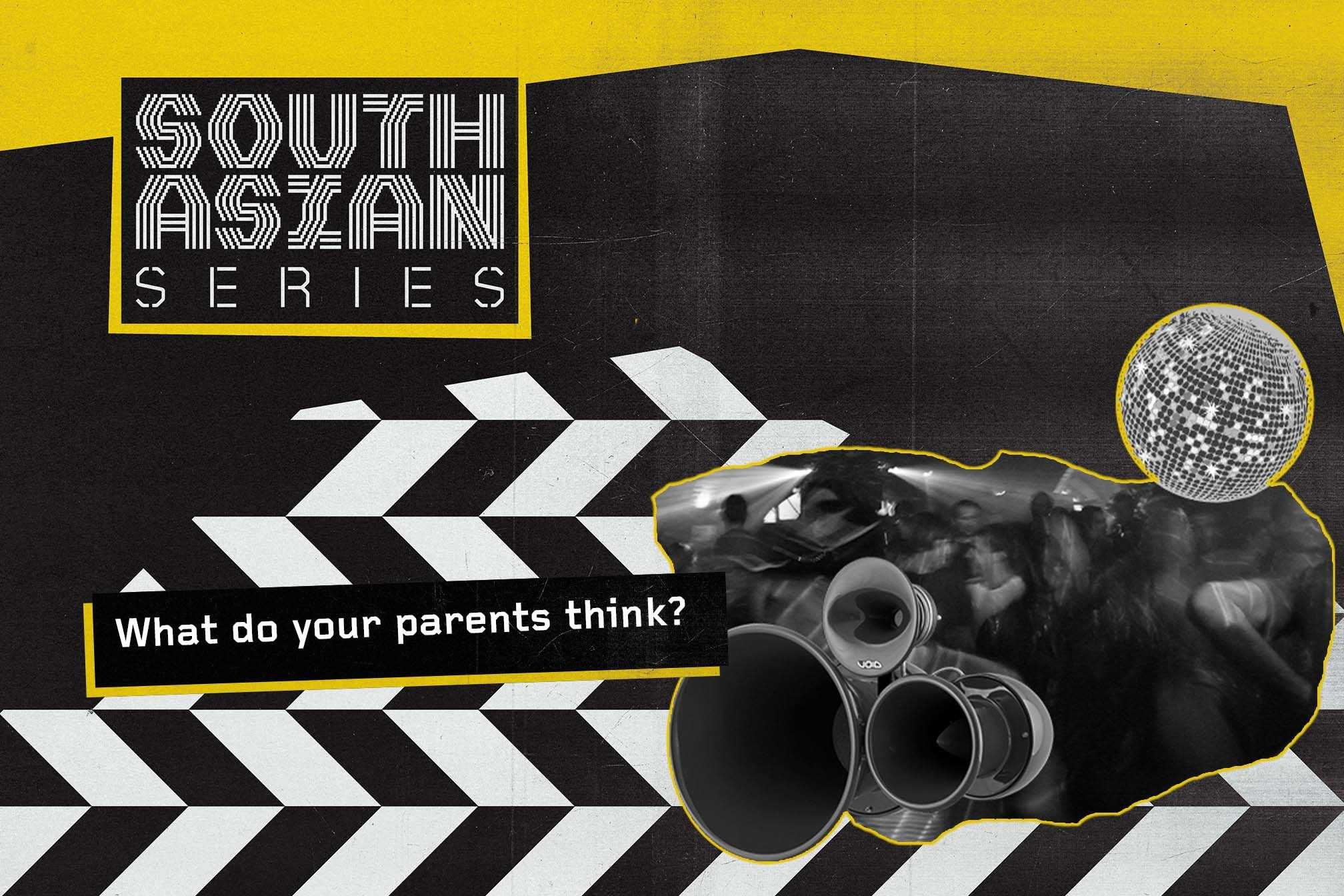 Features
Features
What Do Your Parents Think?: 4 South Asian DJs share their family's reception to a music career
Manu Ekanayake speaks to four DJs - and two parents - about how pursuing musical interests has been received by their respective families
When I was approached to write for Mixmag’s South Asian Series, my first thought, upon looking at the wide range of talent on display on the Dialled In festival line-up was, ‘What do their parents think?’. Now this plays upon my own South Asian psyche, where my parents and their perception of me are of huge overriding significance. Such is life as a British Asian, I guess, but seeing as the artists are often still in their 20s or early 30s, I thought it was worth speaking to them to see if the things are different now than they were for me at 40. I grew up in the 80s and 90s in Essex, within a conservatively-inclined Sri Lankan community. Becoming a doctor was meant to be our greatest ambition. The adults were the ‘aunties and uncles’ that my parents always wanted to please (none of them were actual relations, just friends of the family). They were the ‘community’ that British Asians are always raised to be wary of – their opinion always matters. Let’s just say it was a relief to go off to university at 19 and then to move to London a few years later. I feel like my own life started then in many ways.
So first I spoke to Daytimers collective co-founder Provhat Rahman. As a producer he had his first track, a percussion-heavy breakbeat number entitled ‘Pedal’, out in December 2020 via London label Rhythm Labs Records to critical acclaim. Plus Daytimers, the South Asian arts collective he helped create back at the beginning of lockdown, has raised thousands of pounds for South Asian causes, via events like a 24-hour live stream in solidarity with Indian farmers’ protests against government farm bills and to raise money for NGO Khalsa Aid, who provided vital humanitarian assistance. And they have released two charity Bandcamp compilations, 'DT001' raising money for human rights charity Restless Beings and 'DT002' more directly focussing on Indian’s COVID-19 relief efforts by funding several different charities. But still, as a British Bangladeshi, his parents’ attitude to his musical endeavours is a complex one.
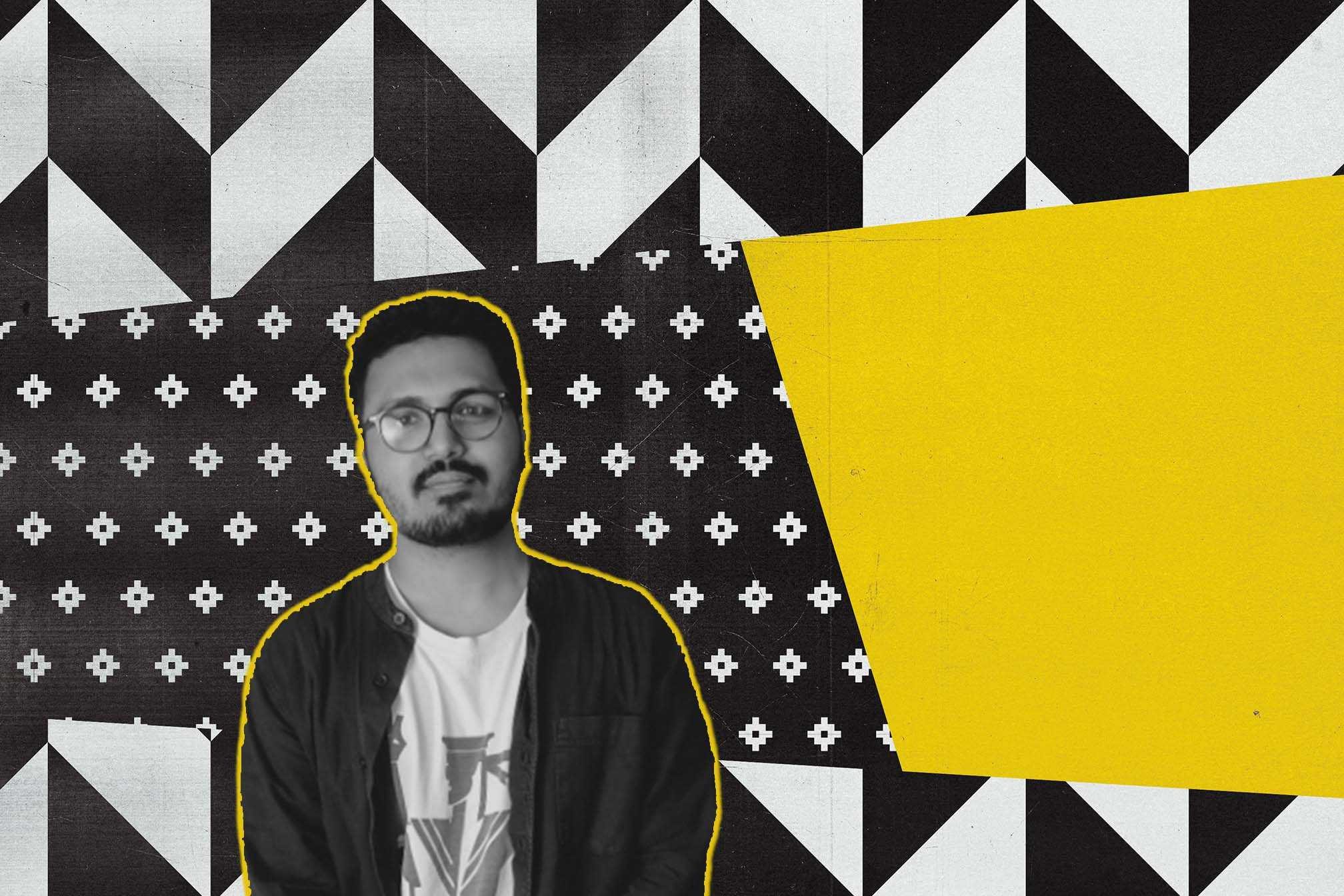
“It was them who initially wanted me to be involved in playing the violin, which I hated, then the trumpet, which I still play every now and then,” he tells me as we talk over Zoom. “I think with the idea to give me the opportunity they never had growing up,” he explains. “Then at the end of secondary school going into sixth form, that's when they realised that from a Sunni Muslim point of view, music on the whole is considered to be haram i.e. forbidden. So that's when they realised that they'd been pushing me into musical instruments and maybe that's not something they should have done.
Read this next: A potted history of the 1990s British (South) Asian Underground
“They both really like music and they’re not really strict or controlling or anything in general,” Rahman continues, speaking from his family home, which has the familiar family photographs that all South Asian families love. “But as they became a bit more conservative they realised there were things they could have been doing, or not, which I think is part of life as a Muslim; understanding ways you can do better within your faith. So in terms of Daytimers and my ongoing music career, it's not really something I've spoken to them about. The only time I've really mentioned it is when we've done the fundraising, which is the majority of what we've done really. So I told them that over the course of this year we've raised over £25,000 for various charities and they've been very impressed. It does resonate with them. But when they've realised that it's been tied in to music that has dimmed how happy they are. Each one of these moments make it harder for me to share the musical side, so there are only certain aspects I can share with them. Which is a shame, as it's something I'm passionate about. It's definitely a tough one to not share with your parents.”
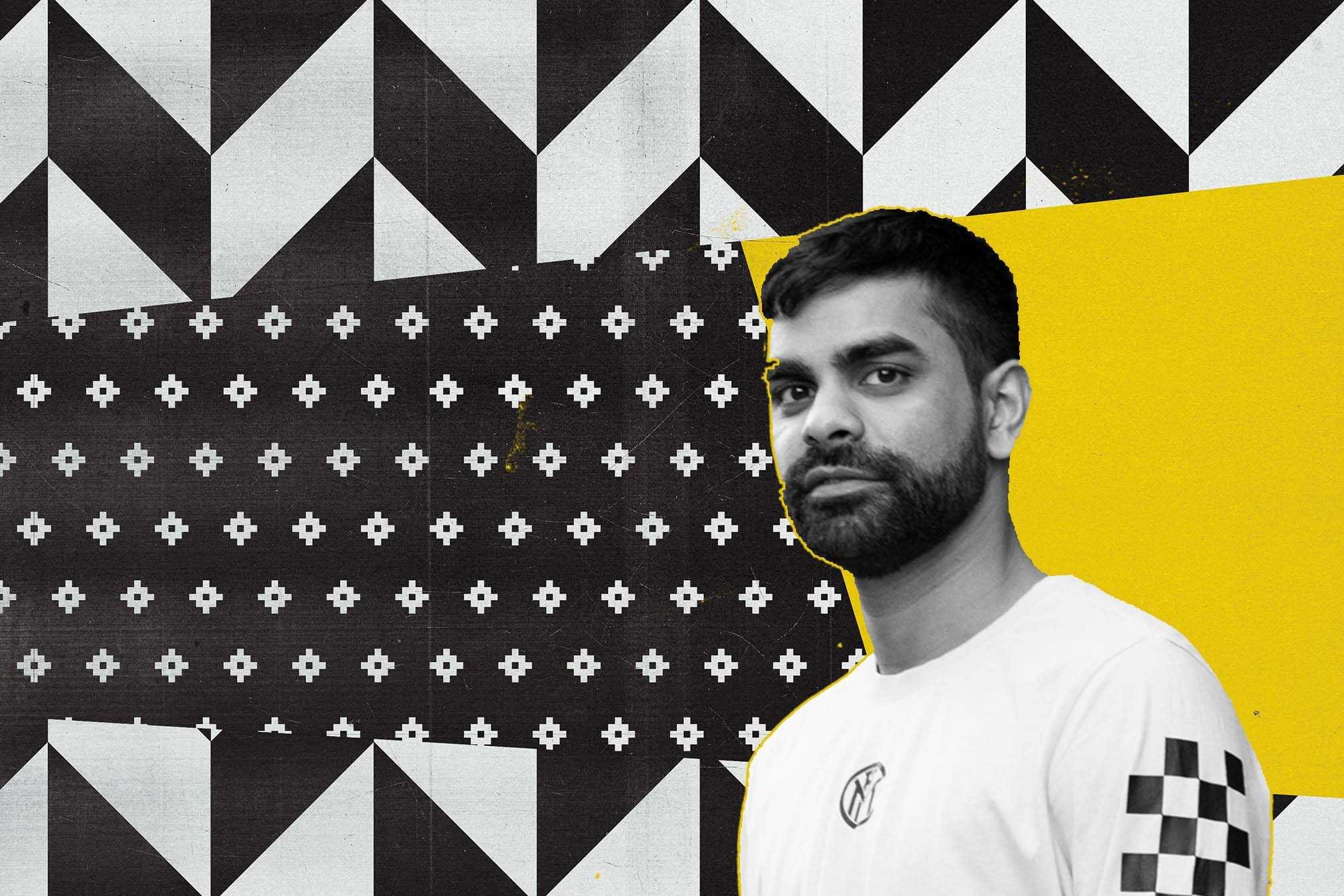
This note of parental disapproval was common with the artists I spoke to, though there was a lot of variation in these opinions, as you would expect. Because the British Asian community is not a monolith and it doesn’t think as one on any particular issue, any more than any other ethnic group does. For example, when I speak to Ahad Elley aka Ahadadream, label boss of More Time Records, he tells me that “Music was always supposed to be a hobby from my parents’ point of view. They moved here from Pakistan when I was 12 or 13 so we could get good university degrees and well-paying jobs. But my mum always said to me ‘Once you have your degree you can do what you want.”
And as someone who’s been a Boiler Room staffer and a BBC Asian Network resident, Elley has certainly made the most of that freedom. But as he tells me “The majority of the team who run Dialled In [which Daytimers are co-promoting with Elley’s No ID imprint and South Asian media project Chalo] have full-time jobs and do music on the side, so that vibe is still there. But it was me doing the BBC Asian Network residency that made my parents realise that what I was doing was a real thing.”
Read this next: Exploring identity: What does it mean to be a South Asian in the UK in 2021?
That old BBC branding really does seem to go down well with Brown parents. When I spoke to NTS Radio regular and touring DJ anu, who is British Indian, she also says that “the closest my parents have come to being proud of me and understanding what I do was the residency with the BBC Asian Network. I made a point of bringing them into the studio for a show and they were super impressed by that. So I think that was a turning point.”
Now while it’s not exactly ideal that Brown parents need the backing of a major broadcaster to accept their children’s creative career choices, it is at least understandable. The BBC is a traditional brand with a huge international history – especially within the subcontinent – and working there could be seen to convey ‘respectability’ upon activities that conservatively inclined immigrant communities might have qualms about.
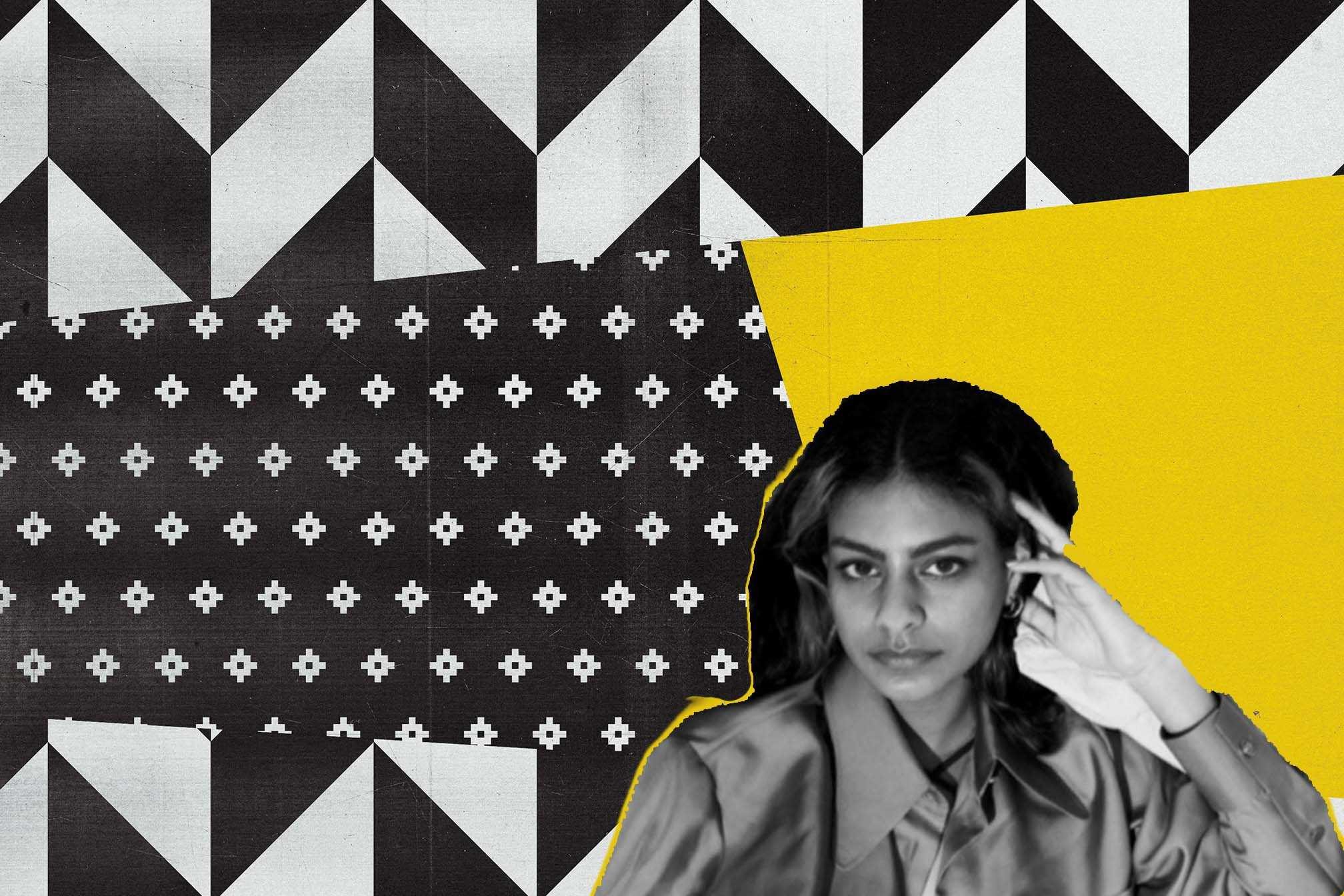
But while respectability is always attractive to conservative communities, be they Brown or otherwise, it’s important to note that British Asian parents’ unease with creative careers could also be driven by fear for their children’s well-being. Provhat Rahman breaks it down: “I think that fear comes from a shared immigrant experience where you come here and you just need to make it, to make the sacrifices worth it. And a lot of the time creative career paths just don't pay well enough, or you're not given the opportunities to excel because of your background. So going into more academic job roles seems like the more obvious thing to do. Why would you take the risk of earning less? Plus with certain family dynamics as well, like you might have to support your parents and potentially your grandparents as well. And not being aware of other avenues where they can do that.”
Read this next: A short history of boundary-breaking South Asians in the UK
Anu feels that it was money worries that were central to her parents’ concerns when she first told them about working in music, “I think they were very worried about money, because they both came from underprivileged backgrounds. But they’re both quite liberal people, so I found it quite weird that they wanted me to be in a job where I could make money. My dad was like, 'You could be a doctor; you could be a lawyer… the Asian parent classics, basically. I mean my dad comes from a music background: he used to promote Bhangra shows, but now he runs an arts charity helping underprivileged kids get qualifications. They both do good work and have made something for themselves.”
Again we come back to the fact that British Asian families are not all the same. I was lucky enough to speak to one DJ – and her parents – who very much prove that. Gracie T was one of the stars of the recent Daytimers Boiler Room, where her B2B set with Chandé went down a storm; not just with the ravers at London’s Colour Factory where it was filmed, but with her parents –and even her grandmother.
“I don't think my parents really understood what Boiler Room was when I first told them,” Gracie explains with a laugh, “They were just excited because I was. But we had some family friends whom we've known forever, who are randomly very into dance music. And they bumped into my parents and were saying 'Oh we just found out about Grace doing Boiler Room, that's so amazing, you must be so proud!' and I think it was at that point my dad realised 'This isn’t just some little gig like she's been doing for the last few years, this is actually on a bigger scale.'”
Speaking about her family, Gracie says, “My British Asian upbringing is quite different to some of my friends in Daytimers, because I am mixed race. My dad is a Malaysian immigrant with Sri Lankan Tamil roots and came here with his sister for school. We don't have a lot of family in the UK. So I was never bought up around a big South Asian community. I'm from the North East; we're from a very small village where we're the only B0rown family.”
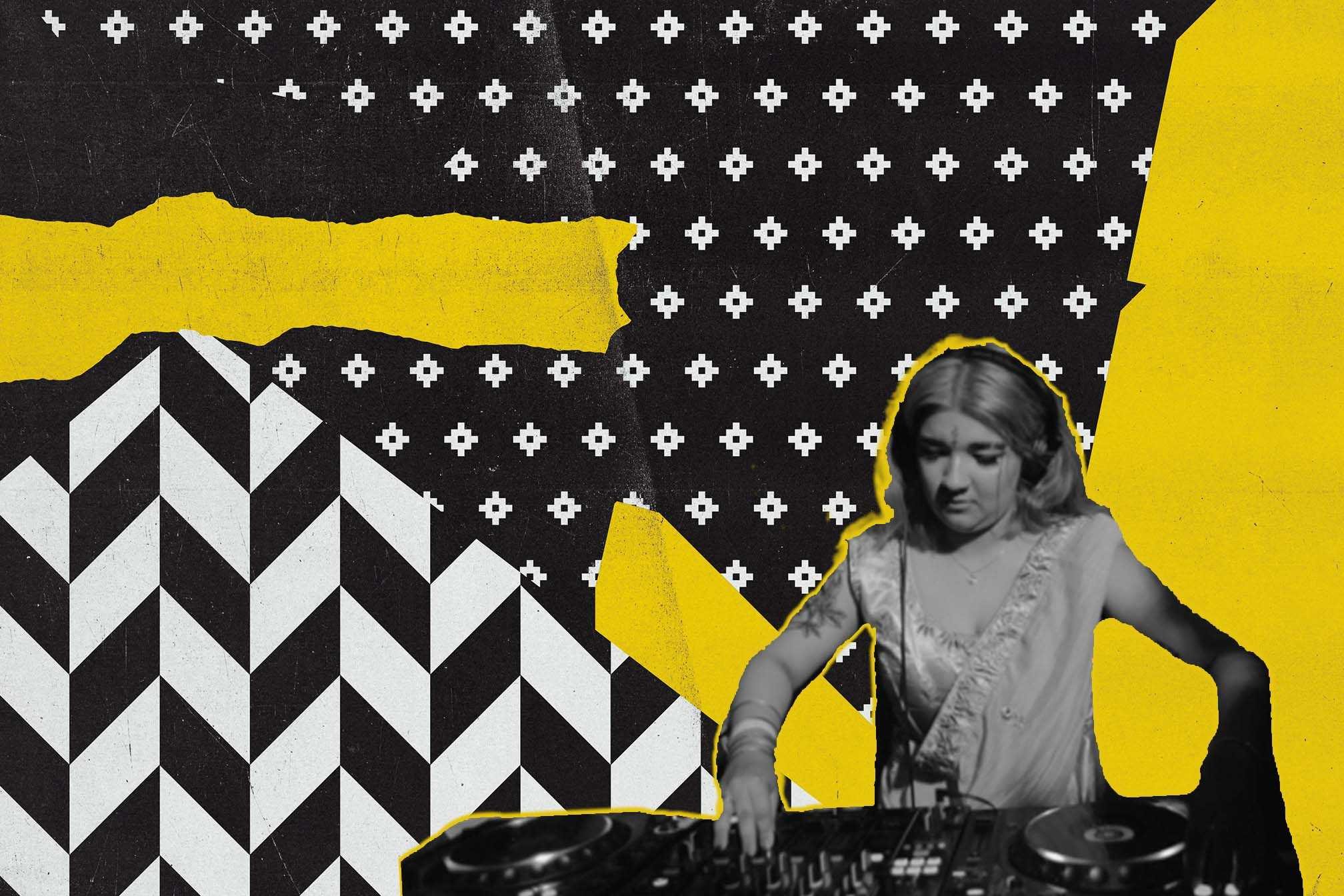
Her mother Allison, who describes herself as “white British and born in Hull”, tells me more about how Gracie grew up: “She was playing the drums from when she was about eight or nine and then she was in bands all through school. Because drum kits aren’t the most portable things we’d have all these very talented teenagers coming to the house and playing, which we loved. We live opposite the local vicarage and even the vicar and his wife would turn off the TV or radio to listen, which I think is really nice.
Jeet, her father, continues, “We were just happy that she found something she really wants to do - we’ve never had to nag her to practice the drums, like we did when she initially started off with piano lessons. And I think it’s the drums that were the basis for her interest more recently in DJing and producing music. Now in the last few years that she’s realised that she can make something true to both her Asian roots and her Western influences, which other people are interested in as well.
Read this next: “We exist in more than one narrative”: Sarathy Korwar & Idris Rahman in conversation
Jeet is a doctor while Allison is an interior designer and they are not “really a musical family”, as the former explains, “But those friends of ours whose kids follow Grace on Instagram really made us realise how significant that Boiler Room show was. We shared it with all our friends and family. And that meant my mother has seen it and she loved the fusion of Grace’s two cultures.”
Gracie confirms this. “Yeah, my amiji, my grandma has really latched on to me playing music with South Asian influences. She watched the Boiler Room and everything. She told me she really liked the 'Asian fusion' I think is what she said. And it's something that has helped us to relate to each other on an intergenerational level, definitely.”
I can’t help but think that is what we need more of: more conversations between the generations, so our multi-faceted South Asian communities can become more welcoming towards the artists in our midst. And on that note I’ll leave the last word to Jeet, Gracie’s dad. “As an Asian dad I feel a little bit anxious about where Grace’s music could take her, but I am very proud of what she's already achieved. I feel it’s unusual for an Asian woman to be in the position that she is in. And the group she's in, Daytimers, come across as a very likeable bunch that are forging role models for people of colour, standing in places where, in the past, you would never have seen them.” Well, you can’t argue with a proud father. British Asian or otherwise.
Manu Ekanayake is a freelance writer, follow him on Twitter


